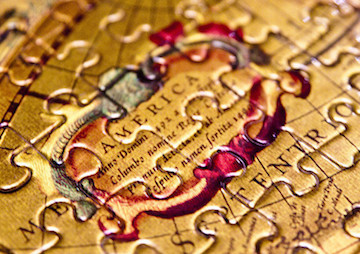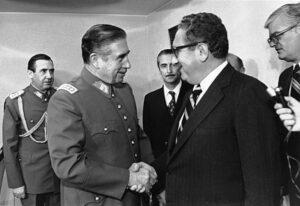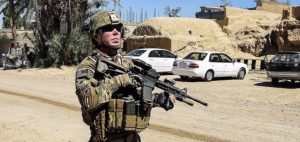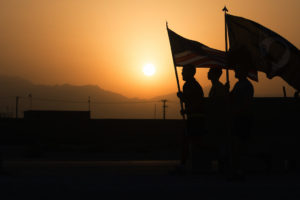Where Did the American Century Go?
If huge swaths of the world have begun to disintegrate in an era when minority insurgencies and terror outfits are the worst opponents the U.S. faces, consider what chaos could come to regions where a potentially hostile power remains. Ken Hawkins / CC-BY-2.0
1
2
3
Ken Hawkins / CC-BY-2.0
1
2
3
Most of the places where the U.S. has let its military and its air power loose — Afghanistan, Iraq, Yemen, Libya, Somalia, and Syria – are now either failed or failing states. Under the circumstances, it might be reasonable to suggest that the very term “failed state” is outdated, and not just because it places all the blame for what’s happened on the indigenous people of a country. After all, if the arc of instability is now in any way “united,” it’s mainly thanks to spreading terror groups and perhaps the Islamic State brand.
Moreover, in the stunted imagination of present-day Washington, the only policies imaginable in response to all this are highly militarized and call for more of the same: more air power in the skies over distant battlefields, more boots on the ground, more private contractors and hired guns, more munitions and weaponry (surprising amounts of which have, in these years, ended up in the hands not of allied forces, but of Washington’s enemies), more special operations raids, more drone assassination campaigns, and at home, more surveillance, more powers for the national security state, more… well, you know the story.
For such a world, a new term is needed. Perhaps something like failed region. This, it seems, is one thing that the American Century has come to mean 75 years after Henry Luce urged it into existence. And perhaps lurking in the undergrowth as well is another phrase, one not quite yet imaginable but thoroughly chilling: failed world.
With this in mind, imagine what the Obama administration’s “pivot” to Asia could mean in the long run, or the recent U.S.-NATO pivot to the Baltics and Eastern Europe. If huge swaths of the planet have begun to disintegrate in an era when the worst the U.S. faced in the way of opponents has been minority insurgencies and terror outfits, or more recently a terror caliphate, consider for a moment what kinds of chaos could come to regions where a potentially hostile power remains. And by the way, don’t for a second think that, even if the Islamic State is finally defeated, worse can’t emerge from the chaos and rubble of the failed region that it will leave behind. It can and, odds on, it will.
All of this gives the very idea of an American Century new meaning. Can there be any question that this is not the century of Henry Luce, nor the one that American political and military leaders dreamed of when the Soviet Union collapsed? What comes to mind instead is the sentiment the Roman historian Tacitus put in the mouth of Calgacus, a chieftain in what is now Scotland, speaking of the Roman conquests of his time: “They make a desert and call it peace.”
Perhaps this is no longer really the American century at all, despite the continuing status of the U.S. as the planet’s sole superpower. A recent U.N. report estimates that, in 2015, a record 65 million people were uprooted, mainly in the Greater Middle East. Tens of millions of them crossed borders and became refugees, including staggering numbers of children, many separated from their parents. So perhaps this really is the century of the lost child.
What could be sadder?
Tom Engelhardt is a co-founder of the American Empire Project and the author of The United States of Fear as well as a history of the Cold War, The End of Victory Culture. He is a fellow of the Nation Institute and runs TomDispatch.com. His latest book is Shadow Government: Surveillance, Secret Wars, and a Global Security State in a Single-Superpower World.
Follow TomDispatch on Twitter and join us on Facebook. Check out the newest Dispatch Book, Nick Turse’s Next Time They’ll Come to Count the Dead, and Tom Engelhardt’s latest book, Shadow Government: Surveillance, Secret Wars, and a Global Security State in a Single-Superpower World.
Copyright 2016 Tom Engelhardt Your support matters…Independent journalism is under threat and overshadowed by heavily funded mainstream media.
You can help level the playing field. Become a member.
Your tax-deductible contribution keeps us digging beneath the headlines to give you thought-provoking, investigative reporting and analysis that unearths what's really happening- without compromise.
Give today to support our courageous, independent journalists.






You need to be a supporter to comment.
There are currently no responses to this article.
Be the first to respond.